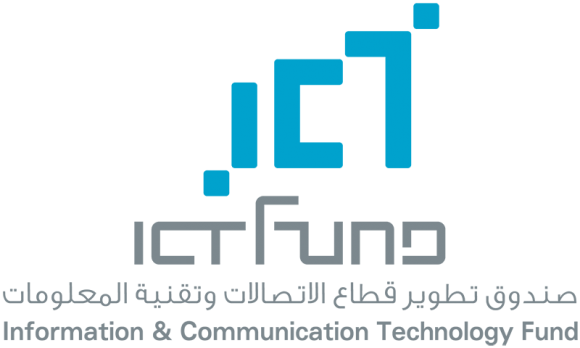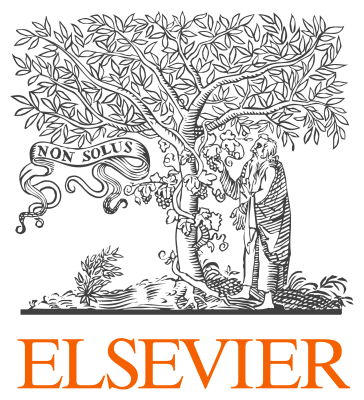Sunday, December 9
8:30 ‑ 8:45 am
Welcome
8:45 ‑ 9:30 am
S1: Technical Papers-I
9:30 ‑ 10:00 am
Keynote 1
10:00 ‑ 10:30 am
Networking Break
10:30 ‑ 11:00 am
Keynote 2
11:00 am ‑ 12:00 pm
S2: Technical Papers II
12:00 ‑ 1:30 pm
Lunch
1:30 ‑ 3:00 pm
S3: Technical Papers-III
3:00 ‑ 3:30 pm
Networking Break
3:30 ‑ 4:00 pm
Keynote 3
4:00 ‑ 5:30 pm
S4: Interactive sessions
Sunday, December 9Sunday, December 9 8:30 - 8:45Welcome: Opening and Introduction: Room: Conference Hall A: Part BSunday, December 9 8:45 - 9:30S1: Technical Papers-I: Room: Conference Hall A: Part BCooperative Game aided Spectrum Sharing in Underlay Cognitive Radio Networks Employing NOMA Schemes, Wei Liang (Northwestern Polytechnical University, P.R. China); Lixin Li (Northwestern Polytechnical University, P.R. China); Jia Shi (Xidian University, P.R. China); Fang Fang (The University of Manchester, United Kingdom (Great Britain)); Zhiguo Ding (University of Manchester, United Kingdom (Great Britain))Non-Orthogonal Waveform Scheduling for Next Generation Narrowband, Tongyang Xu and Izzat Darwazeh (University College London, United Kingdom (Great Britain))Modulation Based Non-Orthogonal Multiple Access for 5G Resilient Networks, Rabia Khan and Dushantha Nalin K. Jayakody (National Research Tomsk Polytechnic University, Russia); Haris Bin Pervaiz (Lancaster University, United Kingdom (Great Britain)); Rahim Tafazolli (University of Surrey, United Kingdom (Great Britain))Sunday, December 9 9:30 - 10:00Keynote 1: Room: Conference Hall A: Part BRate Splitting and Robust Interference Mangement for High Speed, Reliable and Massive Connectivity Communications, Dr Bruno Clerckx, Imperial College London, UKAbstract: To efficiently cope with the high throughput, reliability, heterogeneity of Quality-of-Service (QoS), and massive connectivity requirements of future multi-antenna wireless networks, multiple access and multiuser communication system designs need to depart from two conventional and extreme interference management strategies, namely fully treat interference as noise and fully decode interference. This talk is dedicated to the theory and applications of a more general and powerful transmission framework based on Rate-Splitting (RS) that consists in decoding part of the interference and in treating the remaining part of the interference as noise. This enables RS to softly bridge and therefore reconcile the two extreme strategies of fully decode interference and treat interference as noise. As a consequence, RS provides room for spectral efficiency, energy efficiency and QoS enhancements in a wide range of network loads and user deployments, robustness against imperfect Channel State Information at the Transmitter (CSIT), as well as feedback overhead and complexity reduction.Sunday, December 9 10:00 - 10:30Networking BreakSunday, December 9 10:30 - 11:00Keynote 2: Room: Conference Hall A: Part BMachine Learning for Wireless Communications, Dr Walid Saad, Virginia Tech University, USASunday, December 9 11:00 - 12:00S2: Technical Papers II, Room: Conference Hall A: Part BA Low-Latency and Massive-Connectivity Vehicular Fog Computing Framework for 5G, Chen Xu and Yahui Wang (North China Electric Power University, P.R. China); Zhenyu Zhou (North China Electric Power University & Waseda University, P.R. China); Bo Gu (Kogakuin University, Japan); Valerio Frascolla (Intel Deutschland Gmbh, Germany); Shahid Mumtaz (Instituto de Telecomunicações, Portugal)Sleeping Multi-Armed Bandits for Fast Uplink Grant Allocation in Machine Type Communications, Samad Ali (University of Oulu, Finland); Aidin Ferdowsi and Walid Saad (Virginia Tech, USA); Nandana Rajatheva (University of Oulu, Finland)A Machine Learning Approach to Predicting Coverage in Random Wireless Networks, Hajar El Hammouti (KAUST, Saudi Arabia); Mounir Ghogho (International University of Rabat, Morocco & University of Leeds, United Kingdom (Great Britain)); Syed Ali Raza Zaidi (University of Leeds, United Kingdom (Great Britain))A High-Accuracy Adaptive Beam Training Algorithm for MmWave Communication, Zihan Tang (Tsinghua University, P.R. China); Jun Wang (Tsinghua University, Beijing, P.R. China); Jintao Wang and Jian Song (Tsinghua University, P.R. China)Sunday, December 9 12:00 - 1:30LunchSunday, December 9 1:30 - 3:00S3: Technical Papers-III, Room: Conference Hall A: Part BPerformance Analysis of NOMA for Ultra-Reliable and Low-Latency Communications, Muhammad Amjad and Leila Musavian (University of Essex, United Kingdom (Great Britain))Dynamic Wireless QoS Analysis for Real-Time Control in URLLC, Bo Chang (University of Electronic Science and Technology of China (UESTC), P.R. China); Guodong Zhao and Muhammad Ali Imran (University of Glasgow, United Kingdom (Great Britain)); Zhi Chen and Liying Li (University of Electronic Science and Technology of China, P.R. China)Opportunistic Spectrum Access in Support of Ultra-Reliable and Low Latency Communications, Wenjuan Yu, Atta Ul Quddus, Seiamak Vahid and Rahim Tafazolli (University of Surrey, United Kingdom (Great Britain))Interference-Aware Radio Resource Allocation for 5G Ultra-Reliable Low-Latency Communication, Hassan Malik and Muhammad Mahtab Alam (Tallinn University of Technology, Estonia); Yannick Le Moullec (TTU, Estonia); Qiang Ni (Lancaster University, United Kingdom (Great Britain))EVaaS: A Novel On-Demand Outage Mitigation Framework for Electric Vehicle Enabled Microgrids, Ifiok Umoren and Muhammad Zeeshan Shakir (University of the West of Scotland, United Kingdom (Great Britain))Impact of 3D Channel Modeling for Ultra-High Speed Beyond-5G Networks, Sherif Adeshina Busari (Instituto de Telecomunicações - Aveiro, Portugal); Kazi Mohammed Saidul Huq, Shahid Mumtaz and Jonathan Rodriguez (Instituto de Telecomunicações, Portugal)Sunday, December 9 3:00 - 3:30Networking BreakSunday, December 9 3:30 - 4:00Keynote 3: Room: Conference Hall A: Part BEnergy-Delay Tradeoff in Multi-Device Low Latency High Reliability Communications, Prof. Eduard Jorswieck, Technical University of Dresden, GermanyAbstract: For 5G and beyond wireless networks, low latency and high energy efficiency are two of the most critical yet conflicting key performance indicators. Different physical layer and medium access control layer performance metrics are introduced to describe the quality of service (QoS) and quality of experience (QoE). This comprises effective capacity, energy efficiency, average and instantaneous packet loss tolerances as well as combinations thereof. In this keynote, we will outline a framework to model and optimize scheduling, resource allocation, power control, and precoding to guarantee QoS and QoE requirements in multi-device communication scenarios. We discuss multiuser scheduling schemes over fading channels for loss-tolerant applications as well as effective energy efficiency optimization with wireless power transfer and with non-orthogonal transmissions. The fundamental tradeoff between harvested power and the performance in terms of effective capacity and effective energy efficiency as well as the tradeoff between energy efficiency and QoE are illustrated by various numerical assessments.Sunday, December 9 4:00 - 5:30S4: Interactive sessions Room: Hall 4Jamming Attack Analysis of Wireless Power Transfer on LoRaWAN Join Procedure, Syed Muhammad Danish (National University of Science & Technology, Pakistan); Hassaan Khaliq Qureshi (National University of Sciences and Technology, Pakistan); Sobia Jangsher (Institute of Space Technology, Pakistan)Wireless Mediation for Multi-Hop Networks in Time Critical Industrial Applications, Syed Fahad Hassan (National University of Sciences and Technology, Pakistan); Aamir Mahmood (Mid Sweden University, Sweden); Syed Ali Hassan (National University of Sciences and Technology, Pakistan); Mikael Gidlund (Mid Sweden University, Sweden)DLopC: Data Locality Independency-aware VM Clustering in Cloud Computing, Vipul Moudgil (Thapar University, Patiala (Punjab), India); Gagangeet Singh Aujla (Chandigarh University, Mohali (Punjab), India); Mohammad S. Obaidat (University of Jordan, USA); Neeraj Kumar (Thapar University Patiala, India); Radu Prodan(University of Klagenfurt, Austria)Outage Analysis of Relay-aided Non-orthogonal Multiple Access with Partial Relay Selection, Furqan Jameel (University of Jyvaskyla, Finland); Shurjeel Wyne (COMSATS Institute of Information Technology, Pakistan); Junaid Nawaz Syed (COMSATS University Islamabad, Pakistan); Zheng Chang and Tapani Ristaniemi (University of Jyväskylä, Finland)Joint User Access and Resource Association in Multicast Terrestrial-Satellite Cooperation Network, Yuandong Zhang and Xiangming Zhu (Tsinghua University, P.R. China); Chunxiao Jiang (Tsinghua University, Beijing, P.R. China); Liuguo Yin (Tsinghua University, P.R. China)Outage Probability Analysis of Uplink NOMA over Ultra-High Speed FSO-Backhauled Systems, Mohammad Vahid Jamali (University of Michigan, USA); Seyed Mohammad Azimi-Abarghouyi (Sharif University of Technology, Iran); Hessam Mahdavifar (University of Michigan, USA)Load-balancing for Edge QoE-based VNF placement for OTT Video Streaming, Utku Bulkan, Muddesar Iqbal and Tasos Dagiuklas (London South Bank University, United Kingdom (Great Britain))


















.png%3Fitok=UcTlxbOp)



